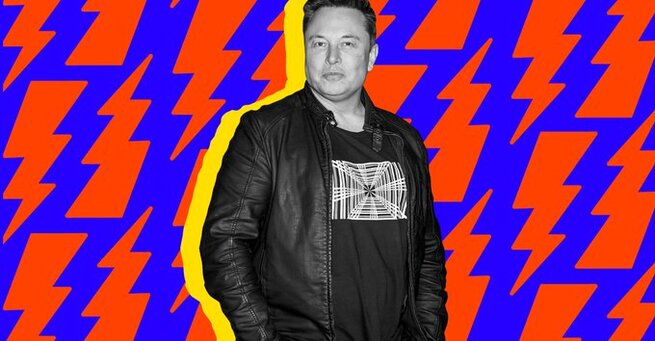Alerts

Elon Musk says he needs $1 trillion to control Tesla’s ‘robot army,’ a bold statement that has left investors and analysts buzzing. During Tesla’s latest earnings call, Musk revealed his desire for more control and a massive compensation package tied to building an AI-powered robotic workforce.
Musk made it clear that without this $1 trillion pay package, his control over Tesla — and its upcoming robot-driven future — could be at risk. He even warned that losing control might jeopardize the company’s ambitions to create millions of autonomous machines.
The Tesla CEO’s comments came as part of a broader appeal to shareholders ahead of a key vote on November 7th. Musk wants Tesla’s board and investors to approve a new compensation plan that would cement his position while funding his dream of building an autonomous “robot army.”
The plan ties Musk’s payout to performance milestones, such as producing one million robotaxis and one million humanoid robots. If successful, Tesla’s market value could soar by trillions, potentially making Musk even wealthier than he already is — and solidifying his control over the company.
Musk’s mention of a “robot army” refers to Tesla’s expanding robotics division, led by the development of its humanoid robot, Optimus. He envisions a near-future where these robots perform human tasks across industries, from manufacturing and logistics to domestic help.
However, his phrasing — suggesting that only he can “control” such an army — has raised eyebrows. Critics argue that Musk’s comments sound more like a power grab than a business proposal. Others view it as part of his larger-than-life persona that thrives on bold declarations.
Elon Musk says he needs $1 trillion to control Tesla’s ‘robot army,’ but experts question whether such an amount is realistic. Tesla’s revenue growth has slowed, and competition in the electric vehicle and robotics sectors is heating up.
Still, Musk believes that AI and robotics represent Tesla’s next trillion-dollar frontier. He argues that human-level robots could eventually outnumber cars, creating a massive new source of revenue. If his predictions hold true, Tesla could transform from an EV company into an AI-driven robotics empire.
Tesla shareholders will cast their votes at the upcoming annual meeting — and the stakes couldn’t be higher. Approving the compensation plan would give Musk enormous control and ensure his leadership through Tesla’s AI evolution.
Rejecting it, however, might risk losing Musk’s involvement altogether. “If I go ahead and build this enormous robot army, can I just be ousted at some point in the future?” Musk asked, highlighting his fear of being pushed out despite his contributions.
Reactions to Musk’s statement have been mixed. Some investors see it as visionary leadership — the kind that built Tesla into an EV powerhouse. Others worry that granting Musk near-total control could be dangerous, especially as the company moves deeper into AI and robotics.
Financial analysts note that this move could set a precedent for other tech CEOs seeking similar control over their AI ventures. It’s a gamble that may either secure Tesla’s dominance or invite corporate instability.
The idea of a Tesla “robot army” isn’t entirely science fiction. Musk’s Optimus project has already produced working humanoid prototypes, with plans to scale production within a few years. These robots could assist in Tesla factories, perform labor-intensive jobs, and even be sold commercially.
Elon Musk says he needs $1 trillion to control Tesla’s ‘robot army,’ and this request signals Tesla’s transition from a car manufacturer to a robotics and AI powerhouse. The company is positioning itself at the intersection of automation, energy, and artificial intelligence — potentially redefining its identity for decades to come.
Musk’s remarks also echo his approach at other ventures like SpaceX and xAI, where control and vision are tightly intertwined. He has repeatedly stated that centralized leadership is necessary to achieve his long-term technological goals — whether it’s colonizing Mars or deploying intelligent robots on Earth.
His demand for a $1 trillion package could be seen as both a test of loyalty and a financial mechanism to maintain that control. By framing his leadership as essential to Tesla’s AI success, Musk ensures that shareholders must weigh the value of his vision against its cost.
Tesla’s “robot army” raises significant ethical and regulatory questions. As robots become more humanlike and autonomous, issues around safety, labor displacement, and accountability emerge. Musk, who has previously warned about AI risks, now finds himself leading one of the largest commercial AI initiatives on the planet.
Whether this makes him a responsible innovator or a conflicted visionary remains to be seen. What’s clear is that Elon Musk says he needs $1 trillion to control Tesla’s ‘robot army’ — and the world is watching to see if he gets it.
Tesla’s annual meeting will determine not just Musk’s paycheck, but the future of one of the most influential companies in tech. If approved, Musk’s proposal could reshape Tesla into a robotics-driven conglomerate that extends far beyond vehicles.
For now, the question lingers: will shareholders hand Musk the $1 trillion he says he needs to control Tesla’s robot army — or will they decide that even visionaries have limits?
𝗦𝗲𝗺𝗮𝘀𝗼𝗰𝗶𝗮𝗹 𝗶𝘀 𝘄𝗵𝗲𝗿𝗲 𝗿𝗲𝗮𝗹 𝗽𝗲𝗼𝗽𝗹𝗲 𝗰𝗼𝗻𝗻𝗲𝗰𝘁, 𝗴𝗿𝗼𝘄, 𝗮𝗻𝗱 𝗯𝗲𝗹𝗼𝗻𝗴. We’re more than just a social platform — from jobs and blogs to events and daily chats, we bring people and ideas together in one simple, meaningful space.
